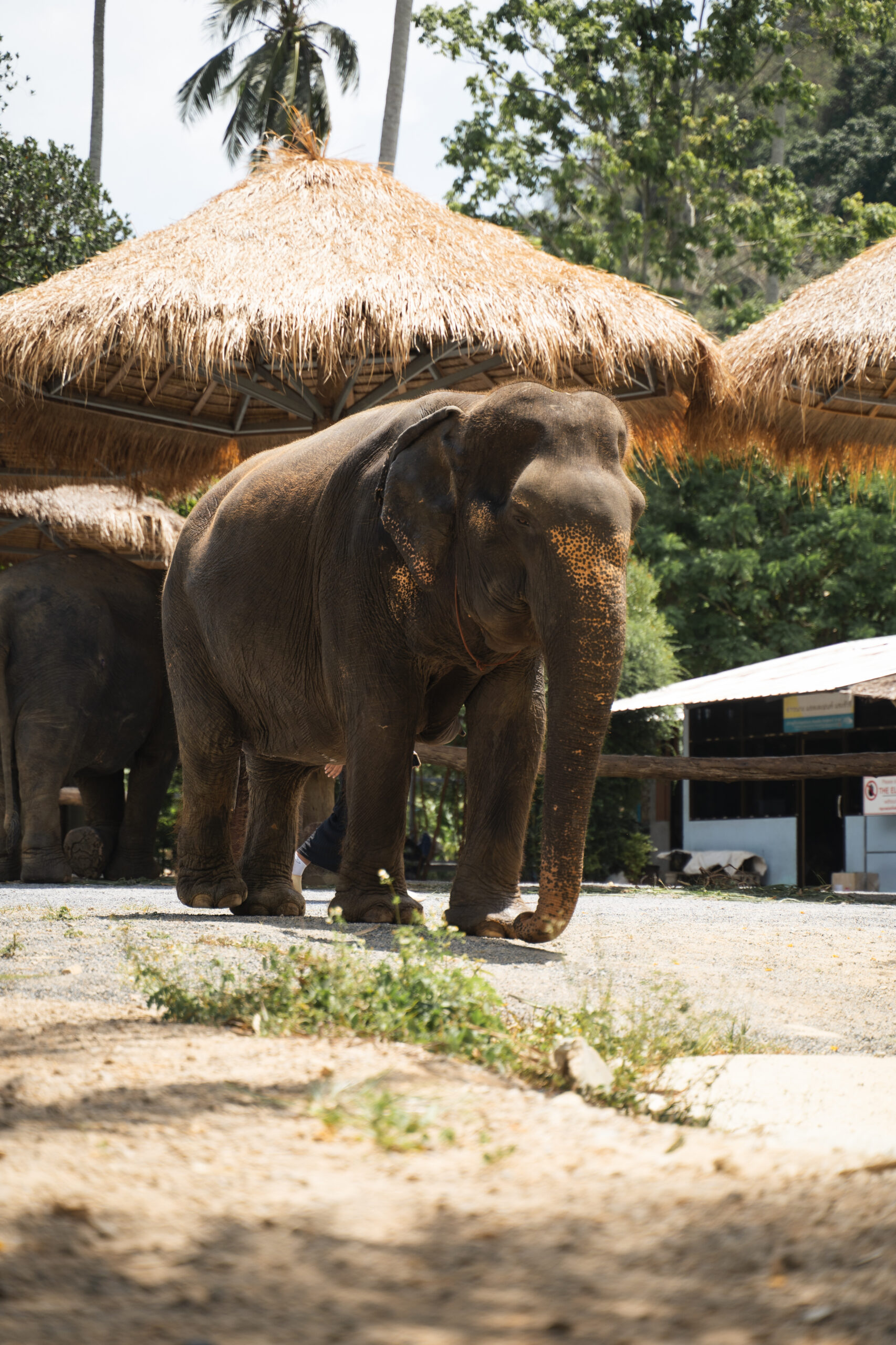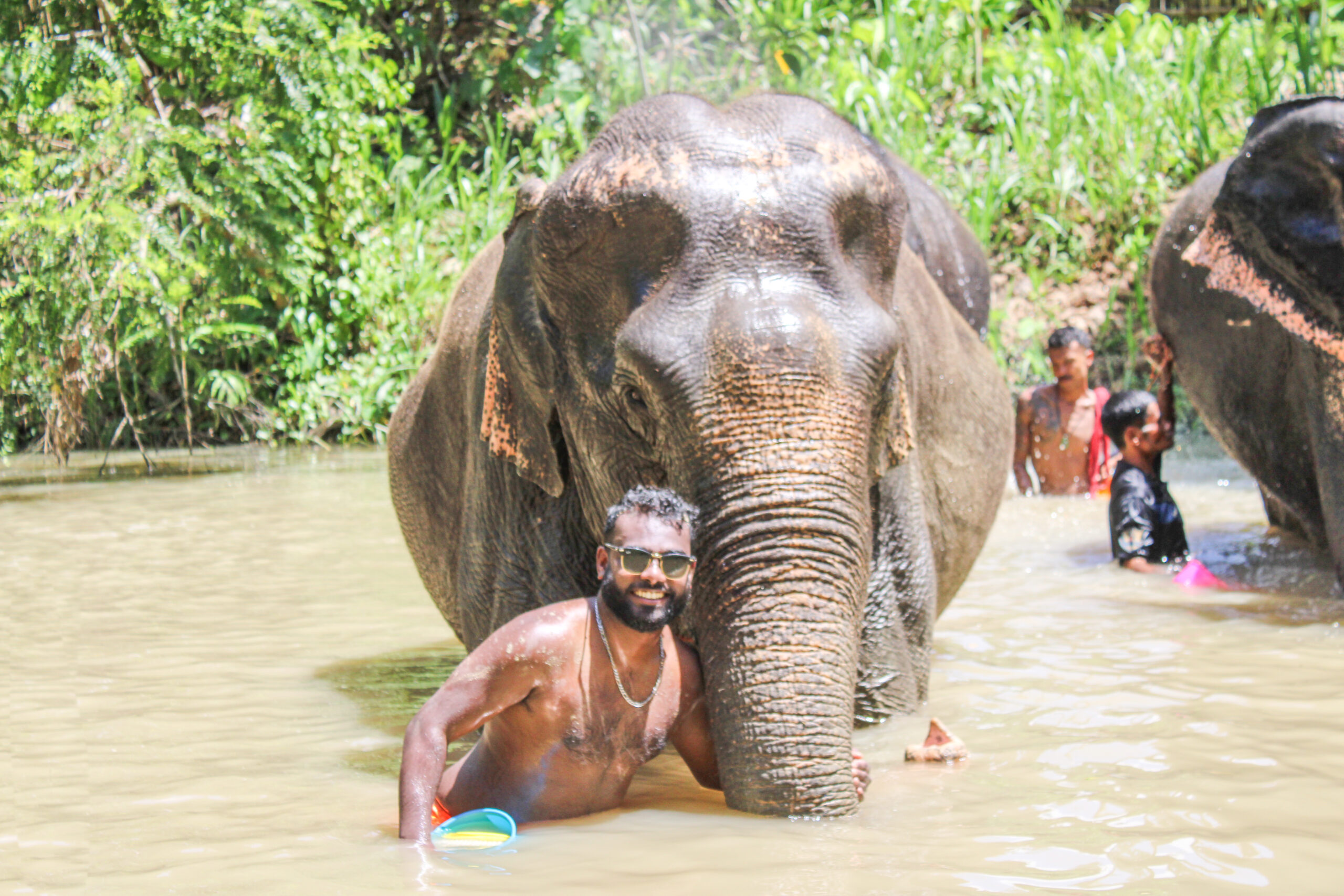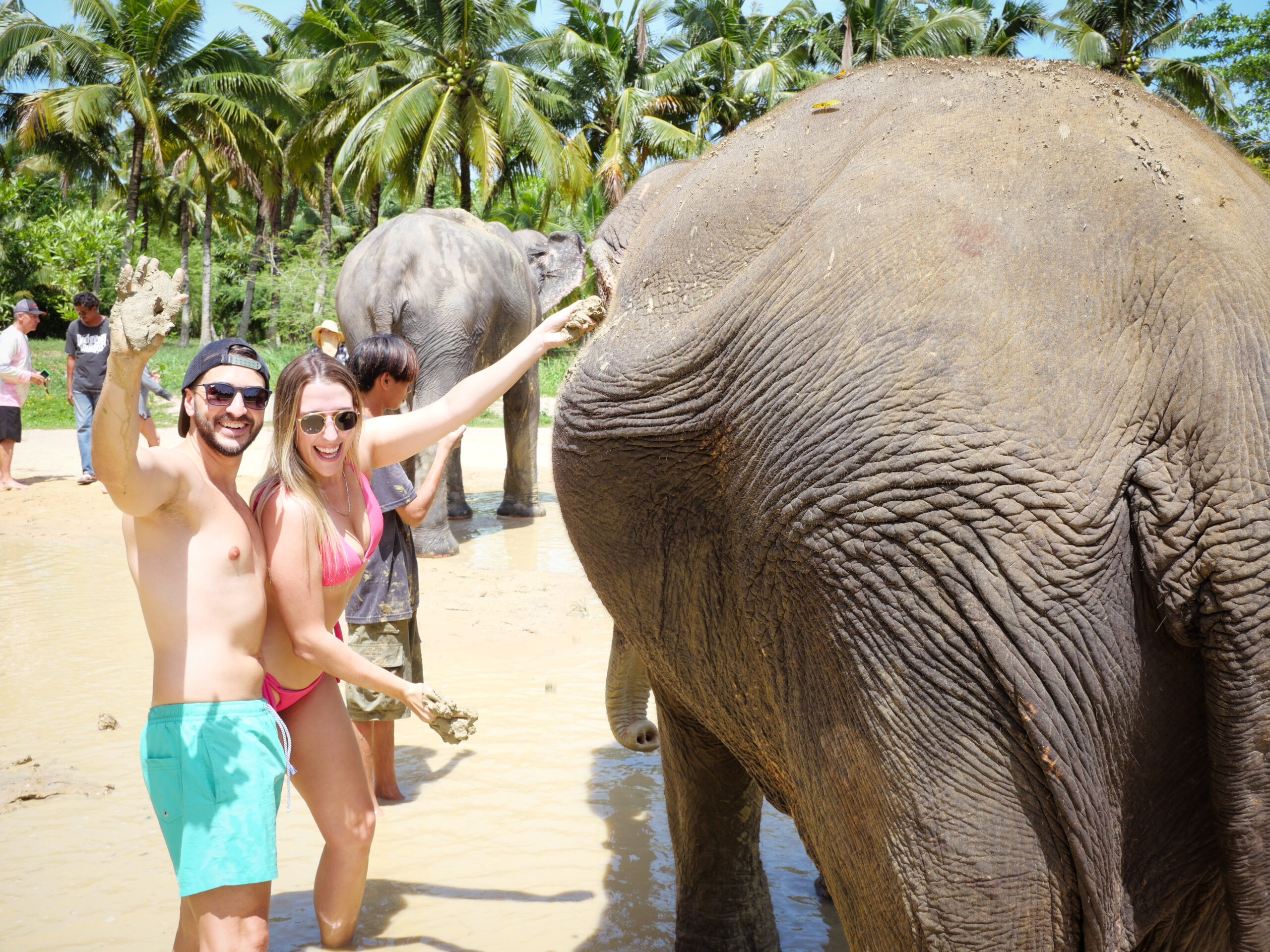
Thailand is a country that captivates the hearts of travelers with its stunning landscapes, vibrant culture, and rich biodiversity. Among its most cherished attractions are the elephant parks, and sanctuaries dedicated to the care and conservation of Asian elephants. These parks offer visitors a unique opportunity to interact with these majestic creatures responsibly and ethically, providing an unforgettable experience that also contributes to elephant welfare and conservation efforts. This comprehensive guide aims to explore the allure of elephant parks in Thailand, offering insights into selecting the right park, what to expect during your visit, and how to make the most of this remarkable adventure.
Why Visit Elephant Parks in Thailand?
Visiting an elephant park in Thailand isn’t just about the opportunity to see these magnificent animals up close; it’s about supporting a cause that matters. The best elephant parks are those that operate on ethical principles, focusing on the rehabilitation and conservation of elephants that have been rescued from less fortunate circumstances. These parks offer a sanctuary where elephants can live freely in naturalistic environments, far removed from the hardships they might have faced previously.
Ethical Considerations in Elephant Tourism
Ethical tourism plays a significant role in the future of elephants in Thailand. By choosing to visit parks that adhere to high welfare standards, tourists can discourage practices that harm elephants and encourage a more sustainable and respectful approach to wildlife tourism. It’s essential to research and select parks that are transparent about their mission and practices, ensuring your visit supports the right values.
Choosing the Right Elephant Park
The key to a fulfilling visit to an elephant park is choosing one that aligns with ethical and sustainable practices. Here are some considerations to keep in mind:
- Conservation Efforts: Support parks that are actively involved in elephant conservation and education. These parks not only provide care for the elephants but also work towards broader conservation goals.
- Visitor Experiences: Choose a park that offers educational experiences, allowing you to learn about elephants and conservation efforts. Activities like feeding, bathing, and walking with elephants (under supervision) can offer more intimate and respectful ways to interact with these animals.
What to Expect During Your Visit
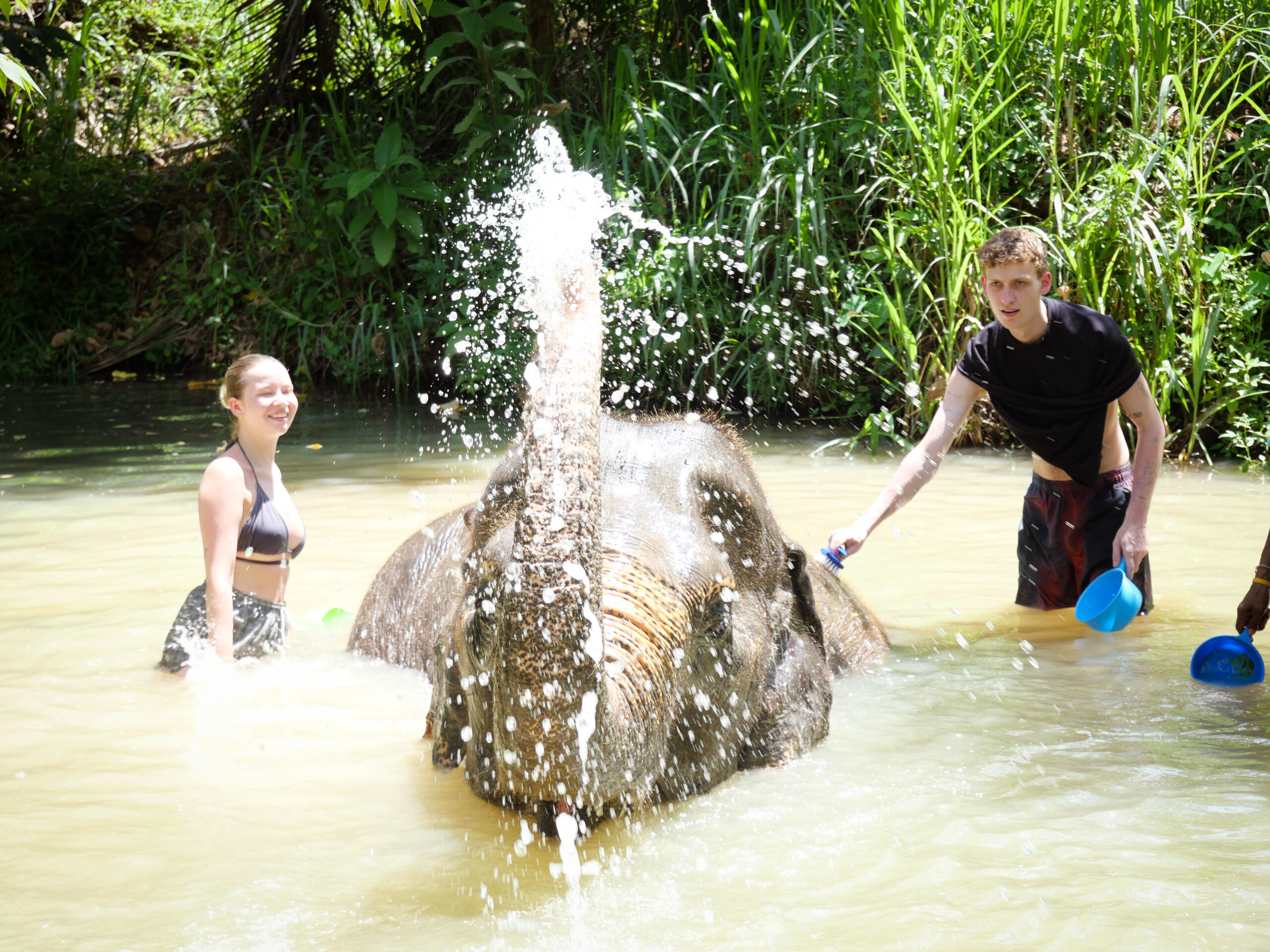
A visit to an elephant park in Thailand can be an enriching experience. Activities typically include observing elephants as they roam, bathe, and socialize in their natural habitat. Many parks also offer educational talks that cover elephant behavior, conservation issues, and how the sanctuary contributes to the well-being of its residents. Ethical interactions, such as feeding under supervision, allow for close encounters while respecting the elephants’ space and autonomy.
Educational Opportunities
Learn about the elephants’ stories, behaviors, needs, and the challenges they face in the wild. This knowledge is crucial for understanding the importance of conservation efforts and the ethical treatment of elephants.
Interactive Experiences
Engage in supervised activities that allow for close-up interactions without compromising the welfare of the elephants. Feeding and bathing the elephants are common activities that provide memorable experiences while respecting the animals’ boundaries.
Contribution to Conservation
Your visit contributes financially to the care of the elephants and supports the park’s ongoing conservation efforts. Many parks also offer opportunities to participate in conservation activities, giving you a hands-on role in making a difference.
Best Practices for Visitors
When visiting an elephant park, it’s important to follow the guidelines provided by the park to ensure a safe and respectful experience for both you and the elephants:
- Always follow the instructions of the park staff.
- Maintain a respectful distance from the elephants unless directed otherwise.
- Avoid loud noises or sudden movements that could startle the animals.
- Do not feed the elephants without permission, as their diets are carefully managed.
Best Time to Visit
The best time to visit elephant parks in Thailand is during the cooler months from November to February. However, these parks are open year-round, offering different experiences across seasons. It’s always a good idea to check with the park in advance for any seasonal considerations.
The Role of Elephant Parks in Conservation
Elephant parks contribute to conservation efforts by providing a refuge for elephants rescued from unsuitable conditions. These parks also serve as educational platforms, raising awareness about the threats facing elephants, such as habitat loss, poaching, and the ivory trade. Through conservation programs and by supporting local communities, these parks work towards a future where elephants can thrive both in captivity and the wild.
How to Recognize an Ethical Elephant Park
Identifying an ethical elephant park is key to ensuring your visit has a positive impact. Ethical parks typically do not offer elephant rides or shows, focusing instead on the natural behavior and welfare of the elephants. These parks engage in transparent practices, allow for natural elephant behaviors, and prioritize the health and well-being of their animals above visitor entertainment.
Making a Difference
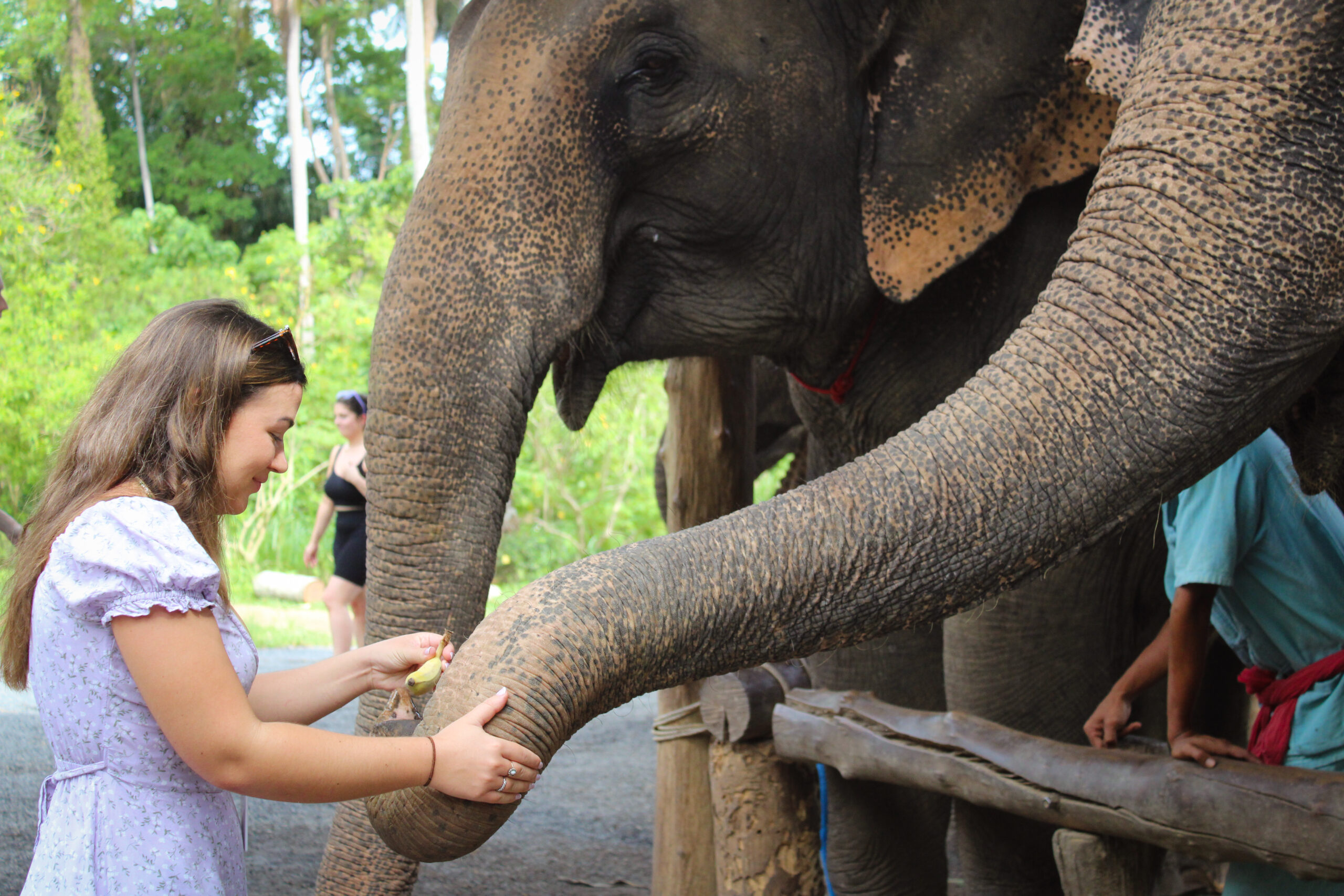
By choosing to visit an ethical elephant park, you’re not just gaining a unique experience; you’re also contributing to a worthy cause. These visits help fund the care of the elephants and support broader conservation efforts, ensuring that future generations will continue to learn from and be inspired by these incredible creatures.
Elephant parks in Thailand offer a rare blend of adventure, education, and the opportunity to contribute to animal welfare and conservation efforts. By choosing to support ethical parks, visitors play a crucial role in the ongoing efforts to protect and preserve these majestic animals. A visit to an elephant park is more than just an item on a travel itinerary; it’s a step towards understanding, respecting, and conservatively coexisting with the natural world.
Frequently asked questions.
How can I be sure a park is ethical?
Research the park’s practices, look for certifications or endorsements from reputable conservation organizations, and read reviews from previous visitors to ensure the park meets ethical standards.
What is the best time of year to visit elephant parks in Thailand?
The best time to visit is during the cooler months from November to February when the weather is more comfortable for both visitors and elephants.
Can I interact with the elephants during my visit?
Yes, but interactions are typically limited to feeding under supervision or observing the elephants in their natural habitat to ensure their well-being.
How do elephant parks contribute to conservation?
Elephant parks contribute by rescuing elephants from unsuitable conditions, providing them with a safe habitat,



